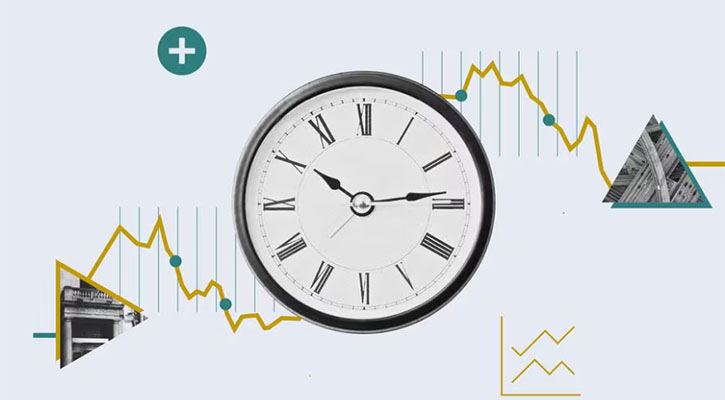France Telecom reported mixed 2009 results, but we won't be changing our EUR 26 fair value estimate. With the pending merger of its UK business with Deutsche Telekom's UK business, FT chose to deconsolidate its UK unit now. The EU regulators are scheduled to either rule on the merger or send it to the UK regulators for further scrutiny by March 1. We take the deconsolidation as a sign that the regulators will likely approve the merger. Excluding the UK, the firm's revenue declined 3.7% from the previous year versus our expectation of a slight gain. About half of the decline was from currencies, mostly the Polish zloty and the Romanian lei, much of the rest of the decline was driven by overall economic weakness. Revenue in Poland dropped almost EUR 1.4 billion or 26.1% including an 18.9% fall in the currency. While Romania isn't as big, its revenue fell 19.5%, which along with weakness in other Central European countries more than offset a 5.2% revenue gain in Africa and the Middle East causing a 0.2% decline in the rest of world segment to revenue of EUR 8.3 billion. While we are disappointed with these poor sales, we don't expect Central Europe to be such a problem going forward.
Somewhat offsetting the weak sales, FT was able to hold down costs allowing EBITDA margins to only fall to 35.5% versus our expectation of a decline to 35.3%. Even more important was the firm's ability to control capital expenditures and working capital, which enabled what FT calls "organic cash flow'' (similar to free cash flow) of EUR 8.35 billion above its guidance of EUR 8 billion. This cash allowed for the payment of EUR 3.8 billion in dividends, several small acquisitions totaling about EUR 2 billion, and almost EUR 2 billion worth of debt reduction. Despite the poor revenue showing, the cash flow suggests the dividend is safe for some time. We are pleased with these choices for the firm's free cash flow and continue to like the stock as an investment.
Fair value: EUR 26 ¦ Uncertainty rating: Medium ¦ Economic moat: Narrow
Thesis
(Last updated 23/10/09)
Despite seeing a bit more weakness in the first half of 2009 than we had expected, we continue to like France Telecom.
The biggest effect of the economic slowdown in Western Europe has been a reduction in travel, which has lowered roaming revenues in FT's wireless division. We had anticipated significant weakness in the United Kingdom and Spain but have been disappointed at how much the global slowdown has hit the firm's emerging market positions, especially in Poland and Romania. Otherwise, revenues in Europe have held up pretty much as expected. We have particularly been impressed with how well the firm is performing in France. Although there has been a lot of concern about the government's plans to sell a fourth wireless license there, with penetration rates around 90% we think it is too late in the game for another operator to earn a sufficient return to justify building out a comparable network, which should allow FT to continue to outperform in its home market.
France has been one of the fastest countries to adopt voice over Internet protocol (VoIP) telephone services. Rather than fighting VoIP, FT embraced it and cannibalised its own subscriber base. It is now the largest provider of VoIP services in France, with 6.3 million customers. VoIP generates less revenue than traditional phone service, but it also costs less to provide, which has enabled the firm to maintain its margins.
The transition to IP has also enhanced the firm's ability to sell high-speed Internet access services, with 7 million "liveboxes" in use in France and another 1.4 million in other European countries. The livebox is a wireless router that allows as many as six computers to be connected to the Internet with speeds up to 8 Megabits per second (Mbps). Liveboxes now account for 80% of France's 8.6 million high-speed Internet access subscribers. They also provide the ability to add other services such as pay television, where FT now has 2.3 million subscribers in France. Growth in these areas has almost offset the declines in traditional voice services. Even if fixed-line revenue continues to decline some, the business will continue to generate substantial cash flow, in our view.
We expect the firm to continue to enlarge its wireless business and we like its emerging-markets portfolio, which we expect to be the focus of future acquisitions. We expect this segment to grow faster than the rest of the business. FT has been reshaping its rest-of-world segment to focus on faster-growing markets, selling its operation in the Netherlands while increasing its stake in Austria and buying positions in Guinea, Guinea Bissau, the Central African Republic, Uganda, and Kenya.
Valuation
We are maintaining our fair value estimate for France Telecom at EUR 26 per share. We continue to expect earnings before, interest, taxes, depreciation, and amortisation as a percentage of sales to decline to slightly below 35% by 2013, as telecom regulators continue to require further cuts in interconnection and roaming fees. We also remain concerned management may pursue another acquisition and overpay to make sure this one is successful. We have already built in an overpayment of EUR 5 billion into our FT model and will maintain that for now as a cushion against an aggressive acquisition.
Risk
With FT thwarted recently in its effort to buy TeliaSonera it could be more aggressive in future acquisition attempts in order to ensure a deal is consummated. France has also moved from being one of the least competitive to most competitive telephone markets in the world. VoIP now accounts for more than 25% of the retail fixed-line market. The wireless market has also become more competitive, with FT losing about 1 percentage point in market share in the last year. The French government also could get involved more with management or sell its stake at an inopportune time. Competition has also increased in other markets that the firm serves, especially the United Kingdom.
Management & Stewardship
Didier Lombard was named chairman and CEO in February 2005. He was previously senior executive vice president of the technologies, strategic partnerships, and new usages group at France Telecom. He worked with former CEO Thierry Breton in devising the firm's restructuring plan, based on EUR 15 billion in cost savings via the TOP programme, EUR 15 billion in new equity, and EUR 15 billion in debt refinancing. The restructuring plan is ahead of schedule, and FT is no longer facing a cash crunch. Gervais Pellissier was named CFO in February 2006; before that, he was chairman and CEO of Bull, a French information technology company. Sanjiv Ahuja, Orange's CEO, was very involved with that division's growth, even before his promotion to lead it. However, we do have a few corporate governance complaints. We would like to see the chairman and CEO roles separated, though we think Lombard comes for a great price. We are pleased to see the number of directors from the government reduced, but we are still concerned that as long as the French government is a significant FT shareholder (it owns a 26.7% stake), the firm may be used to implement political policies, such as increased employment, rather than run for all shareholders. A takeover of the company from any entity not acceptable to the government is also prevented.
Overview
Growth: Wireless and high-speed Internet access continue to grow fast enough to offset the decline in fixed-line revenue. We believe total annual sales growth can average about 1%.
Profitability: FT generated at least EUR 9.5 billion in operating cash flows in nine of the last 10 years. Capital spending is picking up with the introduction of 3G and other initiatives. Despite this spending, free cash flow should increase.
Financial Health: FT's debt load--almost EUR 36 billion net of cash--is still large. However, the firm reached its goal of reducing it to 2 times net debt/EBITDA at the end of 2007, one year ahead of schedule. However, an acquisition could push the debt back up.
Profile: France Telecom is the incumbent telephone operator in France. FT now has less than 68% of the local market and 43% of the cellular market. The firm also has large wireless shares in the U.K., Spain, Poland, and other countries, with a total of 125.5 million subscribers. Fixed and cellular clients generate 87% of sales. FT owns an Internet service and an international corporate telecom service, which have been integrated with the wireless service under the Orange brand.
Strategy: FT is focused on improving operational efficiency through its TOP programme, which aims to cut costs and prepare the firm to offer integrated services among divisions. The objective is to maintain fixed-line phone customer relationships while adding wireless and high-speed Internet access through service packages. This in turn should provide sales growth, increase customer loyalty, and increase margins.
Bulls Say
1. FT should continue to generate significant free cash flow each year for the next five years, which can be used to pay down debt and further increase the dividend, which has increased to EUR 1.4 per share from 0.48 four years ago.
2. The firm is leading the way in convergence between fixed-line and wireless telephony and the Internet.
3. Orange is the market share leader in France and well positioned in the UK. It also has significant growth opportunities in Poland and other countries. Since 2007 it has entered five new African countries.
4. The enterprise communication services business showed some growth, providing hope that the bottom for large corporate clients is near.
5. We think Poland's government is making the correct decisions, which is helping it distinguish itself from many of its Eastern European brethren. We think it will likely recover faster than its neighbors helping FT's Polish division get back on track.
Bears Say
1. Lowering revenue expectations 3 times in 2005 and 2006 hurt management's credibility. The bungled attempt to acquire TeliaSonera in 2008 didn't help, though walking away was better than overpaying. Also, in 2007 the European Union charged the firm EUR 798 million for receiving improper tax benefits from the state, and this could go higher with penalties and interest.
2. The firm still has a large amount of debt at almost EUR 37 billion, a burden that would be exacerbated by a large acquisition.
3. French unions are very strong, making cost-cutting layoffs difficult. FT is in an especially difficult situation, as about two thirds of the firm's employees are civil servants. This is being exacerbated by bad press after 25 employees committed suicide over the past 20 months.
4. More of FT's growth is coming from emerging markets, which entail greater risks than Western Europe.
5. FT is still 26.7% owned by the French government. The government has a significant influence on strategy and may have objectives that are different from other shareholders'.























